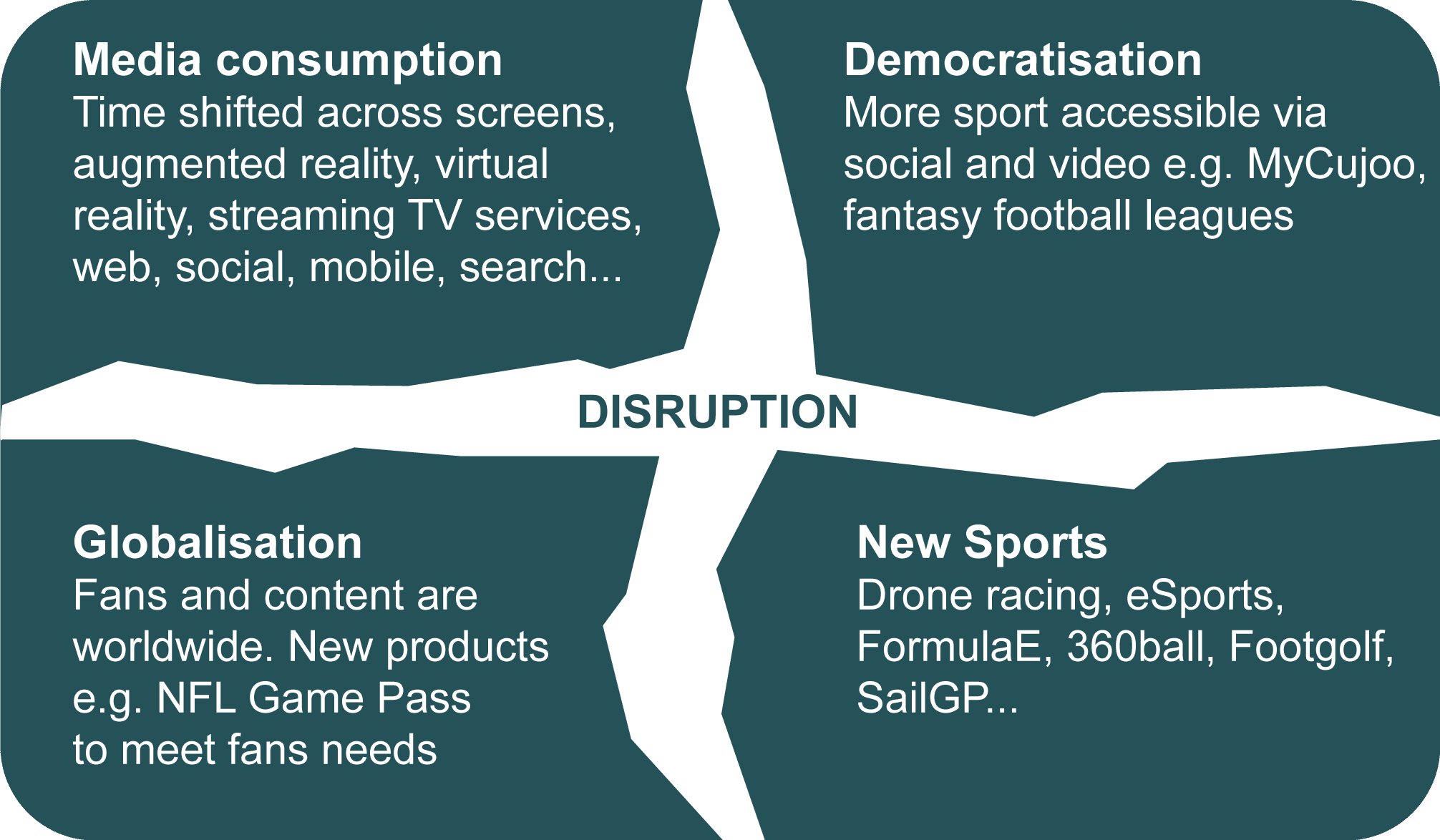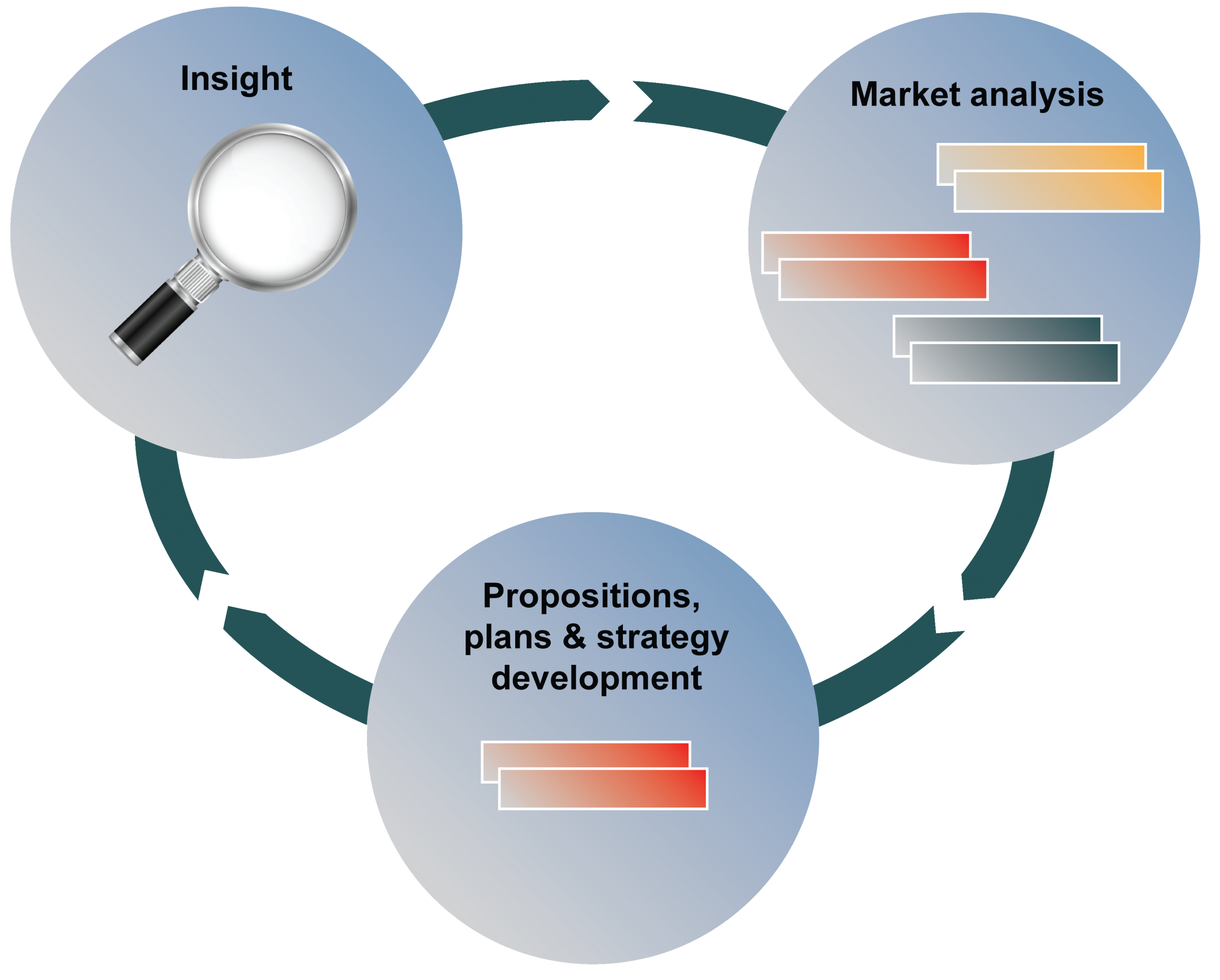
We were recently surprised to be able to welcome some people from the world’s top football clubs (according to one of our instructors!) to one of our public training courses.
Someone from a football club attending a technology product management training course – why were they there?
Unsurprisingly it’s because they looked after some of the technologies and products that underpin the modern game.
But it got us thinking… is there a link between sport and product management? And, about the same time we got into a discussion with Steven Bonner. Steven has worked on technologies at FIFA, UEFA, and The FA – he’s steeped in the world of sport and he provided the ideas behind this blog post and a mountain of evidence to back up the claims.
When you think about the numbers of people involved in sport… it’s incredible. Sport is the activity that engages more people than anything else around the world. And interest keeps on rising.
And sport is getting more and more professional plus there is more and more money involved. So, clubs and governing bodies are using new technology and developing new products to bring entertainment and information to fans.
The game is changing
Just like many technology industries, professional sports are subject to increasing disruption. For sports the impact is seen in the way media gets consumed, increased democratization through social media, increased globalization and an ever-widening range of sports that are clamoring for our attention.

Disruption in the sporting world
The reality is that many people in clubs and governing bodies started out as volunteers, fans or players. They were enthusiastic amateurs keen to get involved or ex-professionals who knew about the sport but had little business background. They then moved into trying to make a living out of what they loved.
And that’s great.
But, that background doesn’t necessarily provide the skills and knowledge to manage products in a business or deal with disruption.
A cultural change and a more professional approach are needed. That means having people skilled at knowing how to develop product strategy, how to identify and understand how to target market segments, how to develop product plans and to grind out delivery, how to keep stakeholders informed and the myriad of other things that need to happen to make a product successful.
The industry needs the insights of product management and product marketing to work out their best opportunities, how to deliver and how to market effectively.
Product Focus’ Product Activities Framework is a key tool to help the discussion on who does what.
And, speed matters because there’s a constant stream of new sports, new ways of viewing sports and new forms of engagement between clubs and their fans. And the changes are getting faster.
Because of the need for speed, having the skills to manage the product lifecycle is becoming more important. Product Focus’ Product Management Lifecycle is a ‘playbook’ that can be used to think through and optimize activities and decision points for products.
Give the fans what they want

Look after the fans
Whilst there are technology companies, such as Apple and Amazon that have their fans, few come anywhere close to achieving the emotional attachment that a sports team can.
Until recently, many sports clubs have taken the loyalty of their fans for granted. They’ve done little to understand their fans and do little to reward their loyalty.
Today, that attitude doesn’t work. Simply sending out emails or flyers to ‘renew your season ticket’ or ‘buy a ticket for the next game’ aren’t good enough. Fans have too many other distractions clamoring for their attention and for their money.
Product managers and marketers understand the value of market research, insights and targeting propositions based on insights to customers and the alternatives where they might choose to spend their money.
Technology product management and product marketing skills help deliver the products that engage fans and keep them interested in coming back for more.
Measure what matters
Interestingly, for professional sports teams, fans don’t bring in the bulk of the money: broadcast rights and sponsorship do that.
Fans are still important because they provide the atmosphere at events and many of the stories on which broadcasting (and therefore sponsorship) thrives.
So, aside from fans, what are the other things that matter? What are the Key Performance Indicators (KPIs) that should be measured?
Sport can learn a lot from digital marketing techniques with which SaaS (Software as a Service) product marketing and digital marketing teams will be familiar. They know that content can be delivered through multiple channels and that feedback and engagement can be measured in a multitude of ways. Instagram engagement, tweets, texts, viewers, merchandise sales, etc.
A sound product approach will provide the analysis needed to guide senior management on what products to build for which audience to achieve success.

Continuous evolution of sports entertainment
Change is happening
It certainly seems that the disciplines of professional product management and product marketing could be beneficial in the sports world.
Is it happening?
Yes, it is, in pockets.
F1 has been transformed since its acquisition by Liberty Media and launched its F1 TV Pro service that gives fans unprecedented access to all onboard cameras and other goodies. My F1 crowd-sourcing competition is an innovative development. And, in the US, a shift in focus to packaged products and digital marketing helped San Francisco based basketball team Golden State Warriors generate nearly as much engagement as the football world-leaders Real Madrid and Barcelona, increasing sponsorship revenue by 300%.
These examples show world-class product management delivering vital insights about products and markets. This enables their companies to deliver the right products at the right time to the diverse markets their sports serve.
So, not only will being a great product manager or product marketer be a route to the top in your own technology-product business but maybe it can also get you a role with your favorite sports club!
Andrew Dickenson, Director, Product Focus
Steven Bonner, Executive Product Manager, BBC


Leave a comment